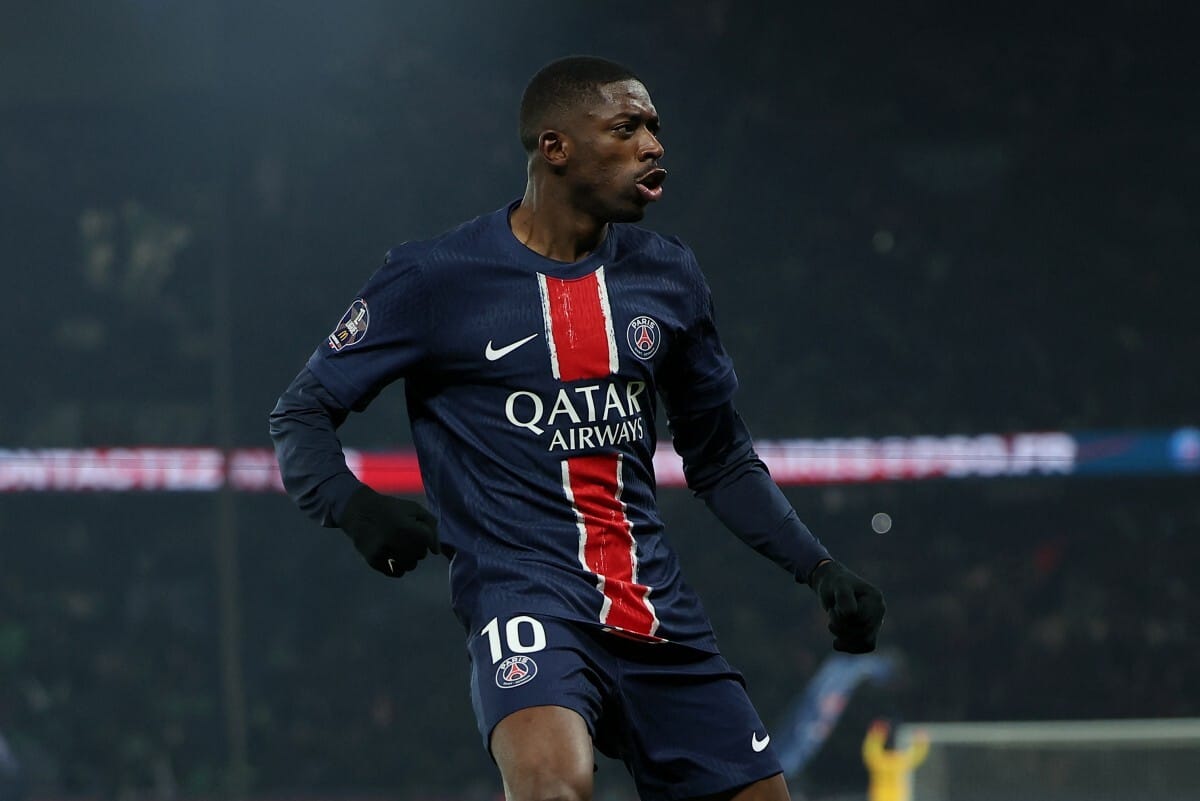From second fiddle to PSG’s leading man
“I’m thinking about the Ballon d’Or. With the season I’ve had, I know I’m not far.”
That bold statement from Ousmane Dembélé would have sounded far-fetched a year ago. Now, it’s being taken seriously.
As Paris Saint-Germain prepare to face Real Madrid in the Club World Cup semi-final, Dembélé heads into the clash not just as the club’s talisman—but as a frontrunner for football’s most prestigious individual award.
This season, he’s already helped PSG win Ligue 1, the Coupe de France, and their long-elusive Champions League title. A fourth trophy is in reach—and Dembélé is central to it all.
Ironically, this transformation has come in the wake of Kylian Mbappé’s high-profile exit to Real Madrid. While Mbappé scored a record 256 goals for PSG, it was only after his departure that the club finally conquered Europe.
And it’s Dembélé, his former teammate and friend, who has stepped into the spotlight.
A long-awaited breakthrough season
Dembélé’s talent has never been in doubt. Signed by Barcelona for £135.5m in 2017, he was once the second-most expensive player in the world. But for six seasons, inconsistency and injuries plagued his time at the Camp Nou.
In Paris, that narrative has flipped. Since joining PSG for £43.5m last summer, he’s enjoyed the season of his life:
34 goals
15 assists
51 appearances across all competitions
He’s also earned public praise from PSG president Nasser Al-Khelaifi, who told DAZN: “If he doesn’t win [the Ballon d’Or], there’s a problem.”
Even Mbappé has backed him: “Would I vote for Dembélé? Yes. My choice is clear.”
From support act to central figure
When Dembélé arrived at PSG in 2023, he was still behind Mbappé in the pecking order, playing wide right and supplying assists while the star man scored freely.
But when Mbappé left, manager Luis Enrique challenged Dembélé to lead. He urged him to shoot more, be more selfish, and embrace responsibility. Privately, PSG’s coaches believed that if he converted just a fraction of the chances he created, he could dominate world football.
The shift worked. Dembélé moved into a false nine role, operating more centrally where he touches the ball more, links play, and finds more scoring opportunities.
And crucially, he took ownership. The numbers—and the trophies—speak for themselves.
A personal transformation behind the scenes
To credit this transformation solely to Mbappé’s exit would miss a deeper truth: Dembélé has matured.
Once notorious at Barcelona for his discipline issues—frequent lateness, poor nutrition, and gaming marathons—he became the club’s most-fined player. Injuries followed, with 14 muscle injuries sidelining him for 784 days.
But things began to change in December 2021, when he quietly married his partner Rima in Morocco. Few teammates even knew he had a girlfriend. Fatherhood followed soon after.
The shift was immediate. He began working with personal physiotherapists, flew to France for preventative treatments, and hired a nutritionist to improve his diet. Those close to him say the birth of his child made him see the game—and life—through a new lens.
He started acting like a professional. And the results have been career-defining.
From potential to proof
Xavi once said Dembélé could be “the best in the world if used properly.” At PSG, that prophecy is being fulfilled. No longer a mercurial talent, he’s become a consistent, complete attacker—and perhaps the man to finally bring the Ballon d’Or back to France.
For years, PSG built their hopes around Mbappé. But their Champions League dream was finally realised not through the old star, but through a new one—one who had been there all along, just waiting to become the player everyone knew he could be.


